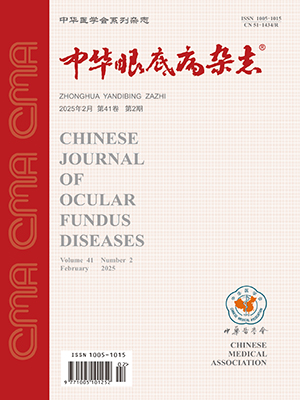| 1. |
Jorge A, Mccormick N, Lu N, et al. Hydroxychloroquine and mortality among patients with systemic lupus erythematosus in the general population[J]. Arthritis Care Res (Hoboken), 2021, 73(8): 1219-1223. DOI: 10.1002/acr.24255.
|
| 2. |
Martinez GP, Zabaleta ME, Di Giulio C, et al. The role of chloroquine and hydroxychloroquine in immune regulation and diseases[J]. Curr Pharm Des, 2020, 26(35): 4467-4485. DOI: 10.2174/1381612826666200707132920.
|
| 3. |
Liu LJ, Yang YZ, Shi SF, et al. Effects of hydroxychloroquine on proteinuria in IgA nephropathy: a randomized controlled trial[J]. Am J Kidney Dis, 2019, 74(1): 15-22. DOI: 10.1053/j.ajkd.2019.01.026.
|
| 4. |
Sayar Z, Moll R, Isenberg D, et al. Thrombotic antiphospholipid syndrome: a practical guide to diagnosis and management[J]. Thromb Res, 2021, 198: 213-221. DOI: 10.1016/j.thromres.2020.10.010.
|
| 5. |
McCullough PA. Regarding: "Hydroxychloroquine: a comprehensive review and its controversial role in coronavirus disease 2019"[J]. Ann Med, 2021, 53(1): 286-286. DOI: 10.1080/07853890.2021.1872094.
|
| 6. |
Pandya HK, Robinson M, Mandal N, et al. Hydroxychloroquine retinopathy: a review of imaging[J]. Indian J Ophthalmol, 2015, 63(7): 570-574. DOI: 10.4103/0301-4738.167120.
|
| 7. |
Marmor MF, Kellner U, Lai TY, et al. Recommendations on screening for chloroquine and hydroxychloroquine retinopathy (2016 Revision)[J]. Ophthalmology, 2016, 123(6): 1386-1394. DOI: 10.1016/j.ophtha.2016.01.058.
|
| 8. |
Kim KE, Ahn SJ, Woo SJ, et al. Use of OCT retinal thickness deviation map for hydroxychloroquine retinopathy screening[J]. Ophthalmology, 2021, 128(1): 110-119. DOI: 10.1016/j.ophtha.2020.06.021.
|
| 9. |
Mondal K, Porter H, Cole J 2nd, et al. Hydroxychloroquine causes early inner retinal toxicity and affects autophagosome-lysosomal pathway and sphingolipid metabolism in the retina[J]. Mol Neurobiol, 2022, 59(6): 3873-3887. DOI: 10.1007/s12035-022-02825-3.
|
| 10. |
Jorge A, Ung C, Young LH, et al. Hydroxychloroquine retinopathy-implications of research advances for rheumatology care[J]. Nat Rev Rheumatol, 2018, 14(12): 693-703. DOI: 10.1038/s41584-018-0111-8.
|
| 11. |
Fröhlich F, González Montoro A. The role of lysosomes in lipid homeostasis[J]. Biol Chem, 2023, 404(5): 455-465. DOI: 10.1515/hsz-2022-0287.
|
| 12. |
Simon MV, Basu SK, Qaladize B, et al. Sphingolipids as critical players in retinal physiology and pathology[J/OL]. J Lipid Res, 2021, 62: 100037[2021-02-06]. https://pubmed.ncbi.nlm.nih.gov/32948663/. DOI: 10.1194/jlr.TR120000972.
|
| 13. |
Mandal N, Grambergs R, Mondal K, et al. Role of ceramides in the pathogenesis of diabetes mellitus and its complications[J/OL]. J Diabetes Complications, 2021, 35(2): 107734[2020-09-16]. https://pubmed.ncbi.nlm.nih.gov/33268241/. DOI: 10.1016/j.jdiacomp.2020.107734.
|
| 14. |
Kaufmann AM, Krise JP. Lysosomal sequestration of amine-containing drugs: analysis and therapeutic implications[J]. J Pharm Sci, 2007, 96(4): 729-746. DOI: 10.1002/jps.20792.
|
| 15. |
Marmor MF, Durbin M, de Sisternes L, et al. Sequential retinal thickness analysis shows hydroxychloroquine damage before other screening techniques[J]. Retin Cases Brief Rep, 2021, 15(3): 185-196. DOI: 10.1097/ICB.0000000000001108.
|
| 16. |
Kim KE, Ryu SJ, Kim YH, et al. Visual field examinations using different strategies in Asian patients taking hydroxychloroquine[J/OL]. Sci Rep, 2022, 12(1): 14778[2022-08-30]. https://pubmed.ncbi.nlm.nih.gov/36042337/. DOI: 10.1038/s41598-022-19048-0.
|
| 17. |
Mohapatra A, Gupta P, Ratra D. Accelerated hydroxychloroquine toxic retinopathy[J]. Doc Ophthalmol, 2024, 148(1): 37-45. DOI: 10.1007/s10633-023-09950-x.
|
| 18. |
Yung M, Klufas MA, Sarraf D. Clinical applications of fundus autofluorescence in retinal disease[J]. Int J Retina Vitreous, 2016, 2: 12. DOI: 10.1186/s40942-016-0035-x.
|
| 19. |
Yusuf IH, Latheef F, Ardern-Jones M, et al. New recommendations for retinal monitoring in hydroxychloroquine users: baseline testing is no longer supported[J]. Br J Dermatol, 2021, 185(2): 435-438. DOI: 10.1111/bjd.20073.
|
| 20. |
Ahn SJ, Joung J, Lee BR. Evaluation of hydroxychloroquine retinopathy using ultra-widefield fundus autofluorescence: peripheral findings in the retinopathy[J]. Am J Ophthalmol, 2020, 209: 35-44. DOI: 10.1016/j.ajo.2019.09.008.
|
| 21. |
Forte R, Haulani H, Dyrda A, et al. Swept source optical coherence tomography angiography in patients treated with hydroxychloroquine: correlation with morphological and functional tests[J]. Br J Ophthalmol, 2021, 105(9): 1297-1301. DOI: 10.1136/bjophthalmol-2018-313679.
|
| 22. |
Akhlaghi M, Kianersi F, Radmehr H, et al. Evaluation of optical coherence tomography angiography parameters in patients treated with hydroxychloroquine[J]. BMC Ophthalmol, 2021, 21(1): 209. DOI: 10.1186/s12886-021-01977-5.
|
| 23. |
Ahn SJ, Ryu SJ, Lim HW, et al. Toxic effects of hydroxychloroquine on the choroid: evidence from multimodal imaging[J]. Retina, 2019, 39(5): 1016-1026. DOI: 10.1097/IAE.0000000000002047.
|
| 24. |
Ghasemi Falavarjani K, Wang K, Khadamy J, et al. Ultra-wide-field imaging in diabetic retinopathy, an overview[J]. J Curr Ophthalmol, 2016, 28(2): 57-60. DOI: 10.1016/j.joco.2016.04.001.
|
| 25. |
Corradetti G, Violanti S, Au A, et al. Wide field retinal imaging and the detection of drug associated retinal toxicity[J]. Int J Retina Vitreous, 2019, 5(Suppl 1): S26-39. DOI: 10.1186/s40942-019-0172-0.
|
| 26. |
Yusuf IH, Charbel Issa P, Ahn SJ. Novel imaging techniques for hydroxychloroquine retinopathy[J/OL]. Front Med (Lausanne), 2022, 9: 1026934[2022-10-13]. https://pubmed.ncbi.nlm.nih.gov/36314000/. DOI: 10.3389/fmed.2022.1026934.
|
| 27. |
Gordon C, Amissah-Arthur MB, Gayed M, et al. The British society for rheumatology guideline for the management of systemic lupus erythematosus in adults: executive summary[J]. Rheumatology (Oxford), 2018, 57(1): 14-18. DOI: 10.1093/rheumatology/kex291.
|
| 28. |
Bowman SJ, Guest L. The national clinical audit for rheumatoid and early inflammatory arthritis[J]. Clin Med (Lond), 2016, 16(6): 500-501. DOI: 10.7861/clinmedicine.16-6-500.
|
| 29. |
Melles RB, Jorge AM, Marmor MF, et al. Hydroxychloroquine dose and risk for incident retinopathy: a cohort study[J]. Ann Intern Med, 2023, 176(2): 166-173. DOI: 10.7326/M22-2453.
|
| 30. |
Yeo B, Hamad R, Paul A, et al. Hydroxychloroquine baseline retinopathy screening: when to refer patients? A practical approach to optimise resource use[J]. Eye (Lond), 2020, 34(8): 1305-1306. DOI: 10.1038/s41433-020-0794-3.
|
| 31. |
Xu C, Zhu L, Chan T, et al. Chloroquine and hydroxychloroquine are novel inhibitors of human organic anion transporting polypeptide 1A2[J]. J Pharm Sci, 2016, 105(2): 884-890. DOI: 10.1002/jps.24663.
|
| 32. |
Gobbett A, Kotagiri A, Bracewell C, et al. Two years' experience of screening for hydroxychloroquine retinopathy[J]. Eye (Lond), 2021, 35(4): 1171-1177. DOI: 10.1038/s41433-020-1028-4.
|
| 33. |
Melles RB, Marmor MF. Rapid macular thinning is an early indicator of hydroxychloroquine retinal toxicity[J]. Ophthalmology, 2022, 129(9): 1004-1013. DOI: 10.1016/j.ophtha.2022.05.002.
|
| 34. |
Aduriz-Lorenzo PM, Aduriz-Llaneza P, Araiz-Iribarren J, et al. Current opinion on hydroxychloroquine-related retinal toxicity screening: where do we stand now?[J]. Lupus, 2020, 29(7): 671-675. DOI: 10.1177/0961203320919499.
|




